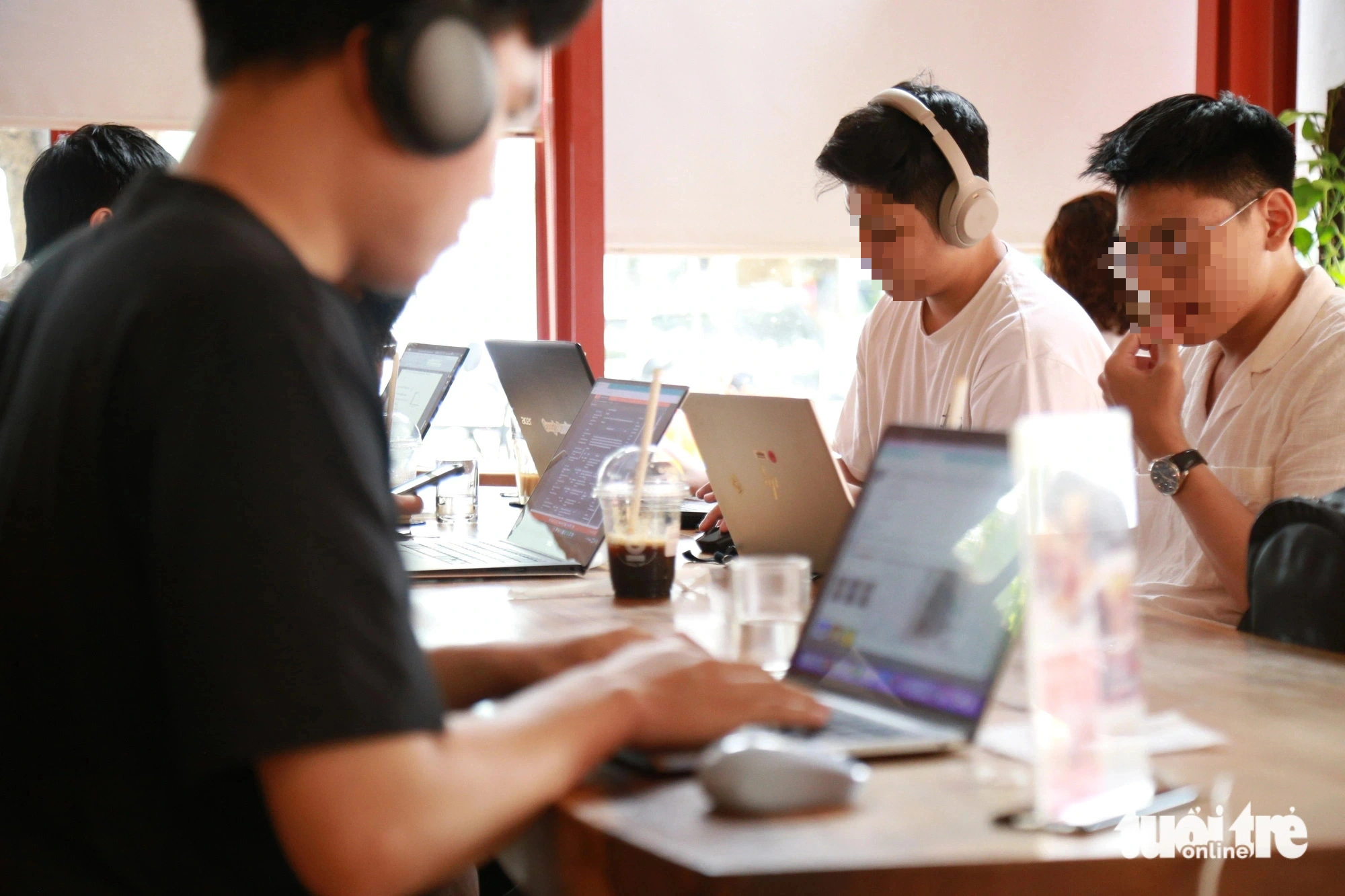During these scorching summer days in Vietnam, many people opt to bring their laptops to coffee shops and camp out there all day for work, but they only order a single drink, much to the displeasure of the coffee shop proprietors.
It is understandable that amidst the heat, many white-collar employees prefer to convert coffee shops into their temporary workplaces.
However, rather than choosing dedicated coworking spaces, many select coffee shops with appealing views or cool interiors, or even milk tea haunts.
Once there, they remain glued to their seats for hours on end.
Busier but less revenue
P, the owner of a large coffee shop in Lien Chieu District, Da Nang City, bemoaned that his shop's classic decor, spacious yards and gardens, and air-conditioned interiors attract many customers, particularly students, who occupy the air-conditioned spaces all day with their laptops.
As the outdoor areas are uncomfortably hot these days, many other customers opt for alternative venues instead of visiting P.'s coffee shop.
Consequently, although P.'s coffee shop is consistently filled with customers, its revenue has significantly dropped during this period.
"Although every customer is valued equally, my coffee shop can't sustain itself, considering the monthly rental expenses of nearly VND50 million [US$1994], in addition to employee salaries and other overheads, especially when some customers linger for hours after purchasing just one drink," the shop owner elaborated.
P. intends to decrease the number of power plugs and replace cushions with wooden chairs in the hope of discouraging customers from lingering.
Facing a similar predicament, H., a manager of a milk tea shop in Hai Chau District, Da Nang, highlighted that during these hot summer days, many students bring their laptops and remain seated all day.
"In summer, people tend to buy more milk tea in the afternoon," H. said.
"However, many customers end up leaving due to the lack of available seating.
"If lingering customers were more considerate, they would order additional drinks if they plan to stay for more than 3-4 hours."
Finding common ground: courtesy and clear communication
To encourage courteous behavior among customers, online forums and groups dedicated to the youth in Da Nang share tips on how to work in coffee shops in a polite and civilized manner.
Tan Khoi, 22, a student in Da Nang, suggested that shop owners could display notices informing customers of the time limit for staying, encouraging them to consider their duration before entering.
"Why don't shops clearly state their service conditions and associated costs?" the young man recommended.
Ai Nhi, 29, a freelancer, noted that a few coffee shops are dedicated solely to working, particularly those located away from the city center.
These specialized working spaces often charge higher prices for drinks to ensure profitability if customers linger.
Despite the higher prices, many customers willingly pay to 'reserve' a workspace.
"When I work in a coffee shop that isn't solely for working, I choose a table with two chairs and am willing to share the other chair if needed," shared Nhi.
"I rely on my laptop's battery until I must plug in.
"After staying for 3-4 hours, I order snacks to ensure everyone's comfort."
Tips for managing 'lingering' customers
On forums or groups dedicated to catering services, many shop owners share tips for managing customers with laptops, whom they often refer to as 'laptop customers.'
Thai Tuan, 38, the owner of a chain of coffee shops in Da Nang, proposed a solution for waitstaff to handle customers who stay for a long time.
Instead of feeling awkward, staff can politely ask if the customers would like anything additional, especially if they've been there for a while.
Some clients get so absorbed in their tasks that they forget to stay hydrated or eat. A gentle reminder often prompts them to make additional purchases.
For shops not focusing on such clientele, setting a Wi-Fi usage limit by providing a unique password for each bill instead of publicly sharing it could be effective.
Tuan suggested prioritizing smaller tables for less crowded times.
He underlined that these lingering customers contribute to a lively ambiance, ultimately attracting new business.
Yet, having more 2-person tables allows for better table turnover when needed.
Like us on Facebook or follow us on X to get the latest news about Vietnam!


















































